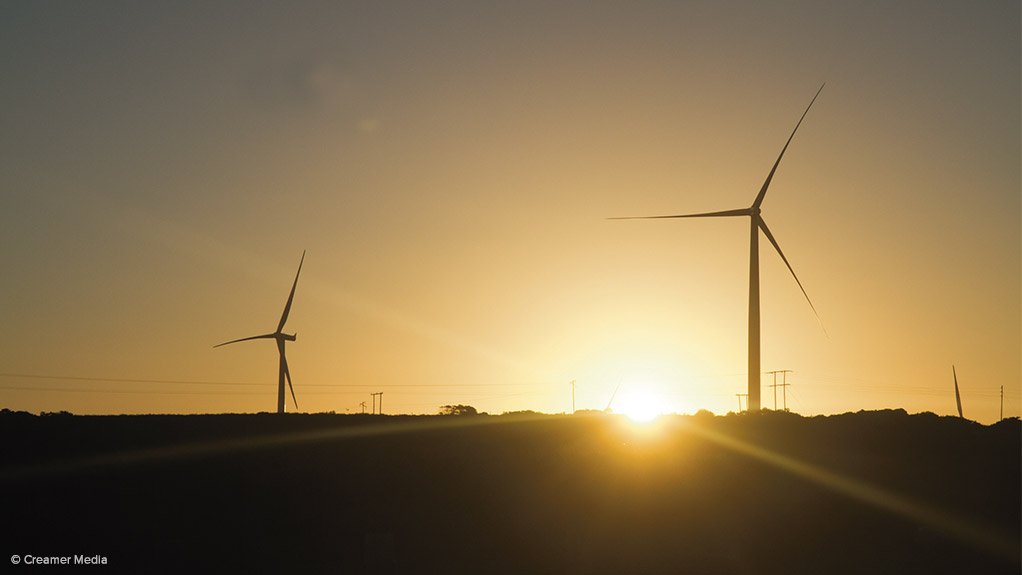The renewable energy from South Africa’s first wind and solar projects last year delivered R800-million more in financial benefits for the country than it cost, according to a study by the Council for Scientific and Industrial Research (CSIR).
The study was based on actual hourly production data for the different supply categories of the South African power system, including coal, diesel, wind and solar photovoltaic (PV) energy sources.
The study found that diesel and coal fuel cost savings were R3.7-billion, owing to the generation of 2.2 TWh of wind and solar energy, which replaced the electricity that would have been generated from diesel and coal – 1.07 TWh from diesel-fired open-cycled gas turbines and 1.12 TWh from coal power stations.
Further, the CSIR determined that the economy saved R1.6-billion as a result of the 120 hours of “so-called unserved energy” that was avoided owing to the power generated by wind and solar projects.
The study added that, during times of tight supply, some customers’ energy supply would have had to be curtailed if renewables had not been used.
Renewables, therefore, contributed total benefits of R5.3-billion, or R2.42/kWh of renewable energy. Further, the tariff payments to independent power producers of the first wind and PV projects were only R4.5-billion – or R2.08/kWh of renewable energy – resulting in a net benefit of R800-million.
CSIR energy centre head Dr Tobias Bischof-Niemz said the researchers used cost assumptions from publically available sources such as State-owned power utility Eskom’s 2014 interim financial results for coal and diesel costs, the Department of Energy’s average tariffs for the first renewables projects and the Integrated Resource Plan’s calculations for the cost of unserved energy, in their methodology.
Conservative assumptions for the system effects and for the costs of coal were chosen, as the study was an “outside-in analysis” of the system operations.
The actual cost savings that renewable-energy sources contributed to during 2014 were, therefore, presumably higher than shown by the study.
“Our study shows that, in 2014, renewable energy provided a net financial benefit to the country. Without the first solar and wind projects, we would have spent significant additional amounts on diesel and energy would have had to be “unserved” during about 120 additional hours in 2014.
“Further, the cost per kWh of renewable energy for new projects is now well below R1 for solar PV and between 60c and 80c for wind projects. That will keep the net financial benefits of renewables positive, even in a future with a less constrained power system,” said Bischof-Niemz.
The CSIR intends to continue to monitor the fuel-saving and security-of-supply benefits of renewable energy.
EMAIL THIS ARTICLE SAVE THIS ARTICLE
To subscribe email subscriptions@creamermedia.co.za or click here
To advertise email advertising@creamermedia.co.za or click here











